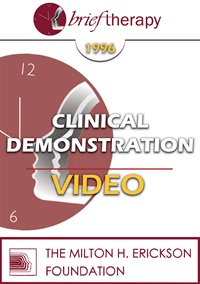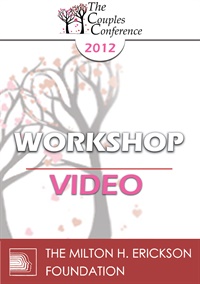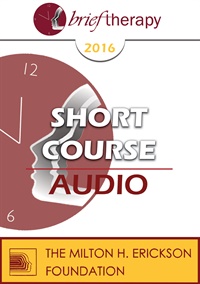
- Average Rating:
- Not yet rated
- Topic Areas:
- Short Courses | Art and Creativity | Communication | Experiential Therapy
- Categories:
- Brief Therapy Conference | Brief Therapy Conference 2016
- Faculty:
- Susan Pinco, PhD
- Duration:
- 1:23:35
- Format:
- Audio Only
- Original Program Date:
- Dec 08, 2016
- Short Description:
- We live in exciting times where ever expanding understandings of the way that our mind-bodies work ignite infinite possibilities. Come unpack these concepts in this experiential workshop.
- Price:
- $15.00 - Base Price
- Average Rating:
- Not yet rated
- Topic Areas:
- Addiction | Short Courses | Communication | Utilization | Mind-Body
- Categories:
- Brief Therapy Conference | Brief Therapy Conference 2016
- Faculty:
- Bart Walsh, MSW
- Duration:
- 1:30:02
- Format:
- Audio Only
- Original Program Date:
- Dec 08, 2016
- Short Description:
- This presentation poses a substance abuse treatment which acknowledges and accommodates the personal needs being addressed by substance use, bypasses perceived resistance and employs idiosyncratic psycho-biological learning to achieve a body-mind gestalt complementary to the client’s sobriety. Client self empowerment and relapse prevention are built into the intervention This method develops a safe framework for addressing any subsequent mental health themes directly or indirectly related to substance misuse. Ideomotor questioning is employed as a practical conduit to body-mind communication and function.
- Price:
- $15.00 - Base Price
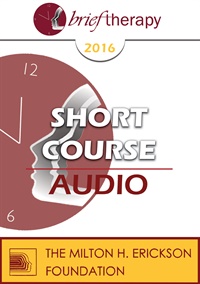
- Average Rating:
- Not yet rated
- Topic Areas:
- Short Courses | Brief Therapy | Solution Oriented Approach | Therapist Development | Communication
- Categories:
- Brief Therapy Conference | Brief Therapy Conference 2016
- Faculty:
- Elliott Connie, MA, LPC
- Duration:
- 59:07
- Format:
- Audio Only
- Original Program Date:
- Dec 08, 2016
- Short Description:
- What sets the Solution Focused Approach apart is the clinician’s deliberate focus on what the client wants instead of focusing on what the client does not want or even their presenting problem. A clinician using this approach must be comfortable enough with solution building language to be able to engage clients into a detailed conversation of their preferred future even though the client may be experience significant troubles in their life. In this workshop the presenter will demonstrate using the language of the Solution Focused Approach with clients, using video examples of real sessions, even when they are experiencing significant pain. The presenter will also lead group exercises and discussion to allow the group to practice using the skills demonstrated.
- Price:
- $15.00 - Base Price
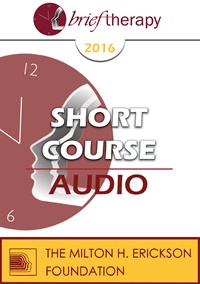
- Average Rating:
- Not yet rated
- Topic Areas:
- Short Courses | Brief Therapy | Communication | Therapist Development | Therapeutic Relationship
- Categories:
- Brief Therapy Conference | Brief Therapy Conference 2016
- Faculty:
- Robert Wubbolding, EdD
- Duration:
- 1:31:50
- Format:
- Audio Only
- Original Program Date:
- Dec 08, 2016
- Short Description:
- Clients or patients often unintentionally present hints indicating current in-control behaviors or a desire for change. Practitioners listen carefully responding to these “throw away comments” and emphasize their significance even though the patient was hardly aware that the statement contains a wealth of meaning and provides a foundation for change.
- Price:
- $15.00 - Base Price
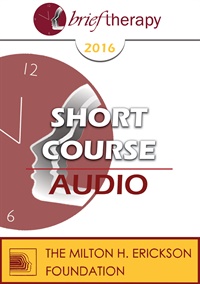
- Average Rating:
- Not yet rated
- Topic Areas:
- Short Courses | Brief Therapy | Communication | Relationships | Therapeutic Relationship | Humor
- Categories:
- Brief Therapy Conference | Brief Therapy Conference 2016
- Faculty:
- John Lentz, D. Min.
- Duration:
- 1:40:07
- Format:
- Audio Only
- Original Program Date:
- Dec 08, 2016
- Short Description:
- One liners that change people is the epitome of brief therapy. All of us have had times when one thing was said at the right moment by the right person and suddenly the world was seen differently. This workshop invites you to recognize elements that make those magic moments possible.
- Price:
- $15.00 - Base Price
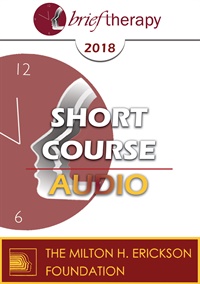
- Average Rating:
- Not yet rated
- Topic Areas:
- Short Courses | Communication | Multicultural | Sex and Sexuality | Brief Therapy
- Categories:
- Brief Therapy Conference | Brief Therapy Conference 2018
- Faculty:
- Mitra Rashidian, PhD
- Duration:
- 1:30:26
- Format:
- Audio Only
- Original Program Date:
- Dec 06, 2018
- Short Description:
- In this workshop, clinicians’ level of comfort, barriers, and attitudes when talking about sexuality will be highlighted, along with useful strategies to provide better engagement with their clients. Additional strategies used to build upon a person’s individual strengths to assist them in overcoming cultural and personal sexual imprints are offered.
- Price:
- $15.00 - Base Price
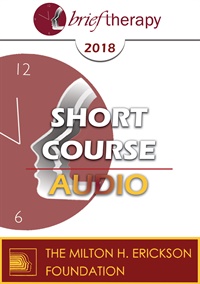
- Average Rating:
- Not yet rated
- Topic Areas:
- Short Courses | Anxiety | Communication | Depression | Neurobiology | Brief Therapy
- Categories:
- Brief Therapy Conference | Brief Therapy Conference 2018
- Faculty:
- Bart Walsh, MSW
- Duration:
- 1:29:10
- Format:
- Audio Only
- Original Program Date:
- Dec 06, 2018
- Short Description:
- Chronic anxiety and depression present significant challenges for those affected by these conditions. A behavioral treatment which accesses deep levels of mindbody functioning facilitates remission of these debilitating conditions. This treatment, conceptualized as essential neurobiological communication (ENBC), incorporates a form of body language known as ideomotor signaling. Because these are chronic conditions, the affected individual learns how to fully manage these states on their own. Also presented is a noninvasive, structured protocol for reducing the adverse influence of unresolved emotion on present experience. Essential to this model is a progressive ratification sequence intended to ground emotional adjustments in thought, perception and behavior. This brief procedure is a useful adjunct to other treatment modalities and instrumental
- Price:
- $15.00 - Base Price
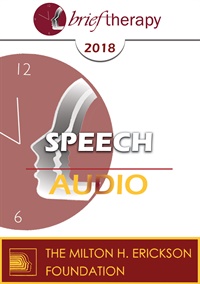
- Average Rating:
- Not yet rated
- Topic Areas:
- Speeches | Marriage | Couples Therapy | Communication
- Categories:
- Brief Therapy Conference | Brief Therapy Conference 2018 | Pioneers in Couples and Family Therapy
- Faculty:
- Michele Weiner-Davis, LCSW
- Duration:
- 38:54
- Format:
- Audio Only
- Original Program Date:
- Dec 09, 2018
- Short Description:
- This session addresses the challenge of mismatched sexual desire, a dynamic that affects one in three couples and can erode both physical and emotional intimacy. It outlines a three-part model: helping the lower-desire partner build empathy, encouraging acts of “real giving” to increase mutual care, and educating couples on the human sexual response cycle. The presentation guides therapists in facilitating open, collaborative conversations to rekindle emotional and sexual connection.
- Price:
- $15.00 - Base Price
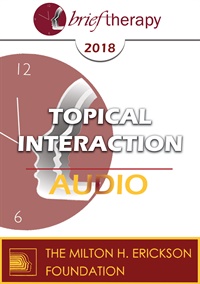
- Average Rating:
- Not yet rated
- Topic Areas:
- Topical Interactions | Brief Therapy | Communication | Evocative Communication | Resources
- Categories:
- Brief Therapy Conference | Brief Therapy Conference 2018
- Faculty:
- Bill O'Hanlon, MS
- Duration:
- 53:03
- Format:
- Audio Only
- Original Program Date:
- Dec 08, 2018
- Short Description:
- What can brief therapy work? In this session, Bill O'Hanlon will make the case that it involves evocation of already existing resources, so the client doesn't have to be fixed, taught new skills or make major changed to resolve problems.
- Price:
- $15.00 - Base Price
- Average Rating:
- Not yet rated
- Topic Areas:
- Clinical Demonstrations | Communication | Couples Therapy
- Categories:
- Brief Therapy Conference | Brief Therapy Conference 1996 | Pioneers in Couples and Family Therapy
- Faculty:
- Ellyn Bader, PhD
- Course Levels:
- Master Degree or Higher in Health-Related Field
- Duration:
- 56:56
- Format:
- Audio and Video
- Original Program Date:
- Dec 13, 1996
- Short Description:
- A clinical demonstration of a therapeutic intervention with a couple experiencing communication breakdown. Through guided dialogue, the therapist helps partners explore their individual needs, fears, and perspectives, teaching skills to disrupt escalating conflict and foster mutual understanding.
- Price:
-
Sale is $29.00
price reduced from Base Price - $59.00
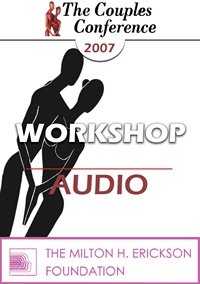
- Average Rating:
- Not yet rated
- Topic Areas:
- Workshops | Couples Therapy | Communication | Relationships
- Categories:
- Couples Conference | Couples Conference 2007
- Faculty:
- Pat Love, EdD
- Duration:
- 2:27:25
- Format:
- Audio Only
- Original Program Date:
- Apr 27, 2007
- Short Description:
- Talking makes many matters worse, not better. Talking can not only exacerbate problems and differences, but prevent the deepest moments of intimacy. Oftentimes therapy focuses too much time talking about connection rather than connecting. Come learn strategies to help couples create love beyond words.
- Price:
- $15.00 - Base Price
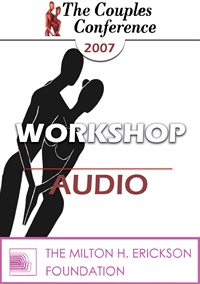
- Average Rating:
- Not yet rated
- Topic Areas:
- Workshops | Affairs | Deception | Couples Therapy | Communication
- Categories:
- Couples Conference | Couples Conference 2007 | Pioneers in Couples and Family Therapy
- Faculty:
- Ellyn Bader, PhD
- Duration:
- 2:01:31
- Format:
- Audio Only
- Original Program Date:
- Apr 28, 2007
- Short Description:
- Bader delves into the complex landscape of honesty in intimate relationships. Drawing from research and clinical experience, she examines the nuanced ways couples deceive each other, from minor "loving lies" to devastating betrayals. Bader explores how differentiation—the ability to authentically express oneself while respecting a partner's separate identity—is crucial for building trust and intimacy. Through case studies and therapeutic techniques, she offers professionals practical strategies for helping couples navigate affairs, overcome deception, and develop the emotional courage to be truly known by one another.
- Price:
- $15.00 - Base Price
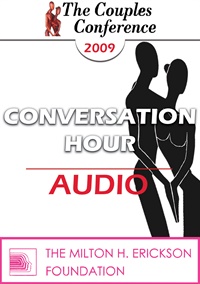
- Average Rating:
- Not yet rated
- Topic Areas:
- Conversation Hours | Couples Therapy | Communication | Relationships
- Categories:
- Couples Conference | Couples Conference 2009
- Faculty:
- Pat Love, EdD
- Duration:
- 52:28
- Format:
- Audio Only
- Original Program Date:
- May 01, 2009
- Short Description:
- CC09 Conversation Hour 02 - How to Improve a Relationship without Talking - Pat Love, EdD
- Price:
- $15.00 - Base Price
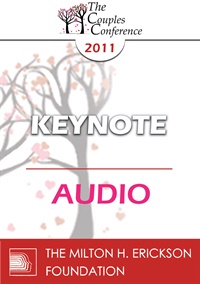
- Average Rating:
- Not yet rated
- Topic Areas:
- Family Therapy | Keynotes | Intimacy | Family Systems | Communication | Couples Therapy
- Categories:
- Couples Conference | Couples Conference 2011
- Faculty:
- Richard Schwartz, PhD
- Duration:
- 56:30
- Format:
- Audio Only
- Original Program Date:
- Apr 03, 2011
- Short Description:
- We have all been taught that our romantic partner should end our misery and make us feel happy and alive. When he or she doesn’t we wonder if they’re the right one. Yet, for most of us, no partner is capable of keeping our heads above the pools of pain and shame we bring to intimate relationships. Only we can drain those pools and become the primary caretakers for the young, needy parts of us that are drowning in those pools. Once this inner trust is achieved, we can love our partners courageously and unconditionally because we don’t need them to always do the heavy lifting of our spirits.
- Price:
- $15.00 - Base Price
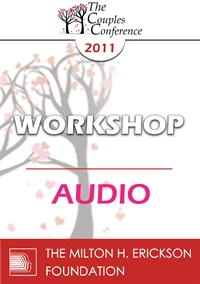
- Average Rating:
- Not yet rated
- Topic Areas:
- Workshops | Communication | Love | Couples Therapy | Family Systems
- Categories:
- Couples Conference | Couples Conference 2011
- Faculty:
- Richard Schwartz, PhD
- Duration:
- 1:57:57
- Format:
- Audio Only
- Original Program Date:
- Apr 02, 2011
- Short Description:
- This workshop is designed to help you and your partner learn how to achieve courageous love, based on the presenter’s Internal Family Systems model of psychotherapy. When couples have self-led conversations, their relationships harmonize naturally. They can discuss even highly charged issues productively and feel safe to reveal their most vulnerable parts to each other.
- Price:
- $15.00 - Base Price
- Average Rating:
- Not yet rated
- Topic Areas:
- IMAGO | Workshops | Communication | Couples Therapy
- Categories:
- Couples Conference | Couples Conference 2012
- Faculty:
- Harville Hendrix, PhD
- Course Levels:
- Master Degree or Higher in Health-Related Field
- Duration:
- 1:55:52
- Format:
- Audio and Video
- Original Program Date:
- Apr 28, 2012
- Short Description:
- Ever since Freud’s patient dubbed psychoanalysis a “talking cure,” most forms of therapy include someone talking to a professional. This workshop posits that therapy consists not so much in the action of talking but in the experience of how one is listened to while they talk, and that the more accurate name for successful therapy is the “listening cure.”
- Price:
-
Sale is $29.00
price reduced from Base Price - $59.00
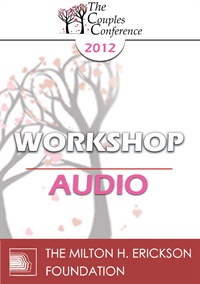
- Average Rating:
- Not yet rated
- Topic Areas:
- Workshops | Communication | Couples Therapy
- Categories:
- Couples Conference | Couples Conference 2012 | Pioneers in Couples and Family Therapy
- Faculty:
- Ellyn Bader, PhD
- Duration:
- 1:01:18
- Format:
- Audio Only
- Original Program Date:
- Apr 28, 2012
- Short Description:
- Couples come to therapy saying “we can’t communicate.” It sounds simple. Yet what does this really mean? Closer examination often reveals trauma, chronic hostility, narcissistic entitlement, or long-term conflict avoidance. And resolution requires internal self-development that may be resisted by one or both partners. This advanced workshop will use video segments to demonstrate the intricacies of resolving predictable communication breakdowns and supporting couples development.
- Price:
- $15.00 - Base Price
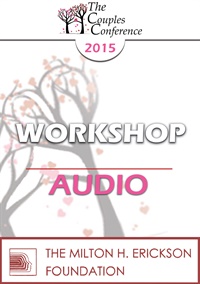
- Average Rating:
- Not yet rated
- Topic Areas:
- Couples Therapy | Workshops | Communication | Relationships | Goals of the Therapist
- Categories:
- Couples Conference | Couples Conference 2015
- Faculty:
- Harville Hendrix, PhD
- Duration:
- 1:38:54
- Format:
- Audio Only
- Original Program Date:
- Apr 24, 2015
- Short Description:
- Couples therapy tends to operate without a clear map of successful outcome, except the reported satisfaction/dissatisfaction of the couple. In this workshop, we will propose an optimal outcome of couple’s therapy, the process of reaching it and demonstrate the procedures that achieve it.
- Price:
- $15.00 - Base Price
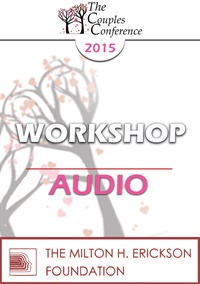
- Average Rating:
- Not yet rated
- Topic Areas:
- Couples Therapy | Workshops | Love | Relationships | Addiction | Sex and Sexuality | Trauma | Attunement | Communication
- Categories:
- Couples Conference | Couples Conference 2015
- Faculty:
- Alexandra Katehakis, MA, MFT
- Duration:
- 1:55:21
- Format:
- Audio Only
- Original Program Date:
- Apr 25, 2015
- Short Description:
- Sex addiction destroys trust in relationships, traumatizing the partner, the sex addict, and the family system. Relational trauma left untreated will have both parties and the entire system crumbling. Attunement, communication, and empathy (ACE) are the three pronged stool that supports the long, and sometimes arduous, journey to restoring trust. The goal is to recognize the signs of relational trauma in both parties, and compare the difference between relational trauma and co-dependence
- Price:
- $15.00 - Base Price
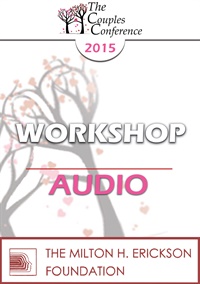
- Average Rating:
- Not yet rated
- Topic Areas:
- Couples Therapy | Workshops | Love | Communication | Intimacy | Relationships
- Categories:
- Couples Conference | Couples Conference 2015
- Faculty:
- Pat Love, EdD
- Duration:
- 1:34:46
- Format:
- Audio Only
- Original Program Date:
- Apr 25, 2015
- Short Description:
- While we love those deep, intimate conversations that bring us close together and join our spirits, what role does difference play in passion? Come explore this and other questions related to relational happiness. We will identify two empathic systems, and understand the role of dopamine in intimate relationships.
- Price:
- $15.00 - Base Price
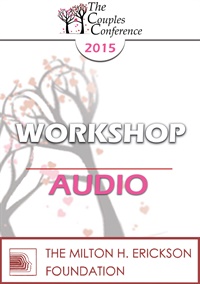
- Average Rating:
- Not yet rated
- Topic Areas:
- Couples Therapy | Workshops | Communication | Interviewing | Therapist Development
- Categories:
- Couples Conference | Couples Conference 2015
- Faculty:
- Peter Pearson, PhD
- Duration:
- 1:53:12
- Format:
- Audio Only
- Original Program Date:
- Apr 26, 2015
- Short Description:
- Conventional approaches begin with: What brings you here? How can I help? What are your objectives? These are great questions for individuals but they are toxic for dysfunctional couples. Their responses will get you a truckload of cross complaints. After ten minutes nobody is feeling great.
- Price:
- $15.00 - Base Price
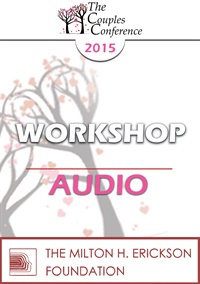
- Average Rating:
- Not yet rated
- Topic Areas:
- Couples Therapy | Workshops | Love | Communication | Conflict | Relationships
- Categories:
- Couples Conference | Couples Conference 2015
- Faculty:
- Bill O'Hanlon, MS
- Duration:
- 1:36:23
- Format:
- Audio Only
- Original Program Date:
- Apr 26, 2015
- Short Description:
- Couples, because they come from different background and have different understandings, often use the same words to mean different things, leading to unnecessary conflict. This workshop will provide a simple, but powerful method to quickly resolve couples conflicts using action talk.
- Price:
- $15.00 - Base Price
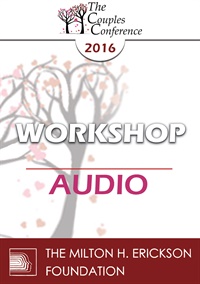
- Average Rating:
- Not yet rated
- Topic Areas:
- Attachment | Workshops | LGBTQ | Relationships | Differentiation | Communication | Intimacy | Sex and Sexuality
- Categories:
- Couples Conference | Couples Conference 2016
- Faculty:
- Rick Miller, MSW
- Duration:
- 01:44:31
- Format:
- Audio Only
- Original Program Date:
- May 15, 2016
- Short Description:
- Gay men face unique challenges regarding intimacy, communication and personal autonomy. Hiding due to being gay along with being raised male, creates a dynamic of distancing as the norm. The goal of psychotherapy is to accept and verbalize vulnerabilities in a context of safety, encourage revealing oneself for the sake of self-acceptance, and to learn how to receive nurturance from others. This workshop will define the art of how to gain connection while maintaining autonomy. There will also be an emphasis on sexuality and how specific attachment styles effects choices related to safety, security and risky sexual practices.
- Price:
- $15.00 - Base Price
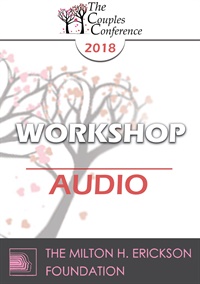
- Average Rating:
- Not yet rated
- Topic Areas:
- Workshops | Couples Therapy | Communication | Art and Creativity
- Categories:
- Couples Conference | Couples Conference 2018 | Pioneers in Couples and Family Therapy
- Faculty:
- Harville Hendrix, PhD | Helen LaKelly Hunt, PhD
- Duration:
- 1:27:55
- Format:
- Audio Only
- Original Program Date:
- May 05, 2018
- Short Description:
- This workshop highlights the shift from individualism to a relational model in couples work, emphasizing the importance of curiosity, wonder, and connection. Key concepts discussed include the “space between” partners, the Zero Negativity Pledge, and the Steps to Wonder process. The framework presented aims to reduce conflict, enhance empathy, and help couples experience greater relational vitality.
- Price:
- $15.00 - Base Price
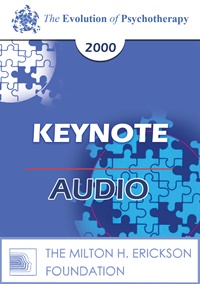
- Average Rating:
- Not yet rated
- Topic Areas:
- Keynotes | Social Psychology | Research | Communication | Motivation
- Categories:
- Evolution of Psychotherapy | Evolution of Psychotherapy 2000
- Faculty:
- Elliot Aronson, Ph.D.
- Duration:
- 1 Hour 3 Minutes
- Format:
- Audio Only
- Original Program Date:
- May 28, 2000
- Short Description:
- This talk brings social psychology to life through vivid, often surprising stories about how people talk themselves into change. Rather than relying on advice or persuasion, it shows how situations that evoke integrity, empathy, and personal responsibility can lead to lasting shifts in behavior. Therapists and students will find fresh ways to think about motivation, resistance, and change, with ideas that naturally echo many therapeutic moments in the consulting room.
- Price:
- $15.00 - Base Price



